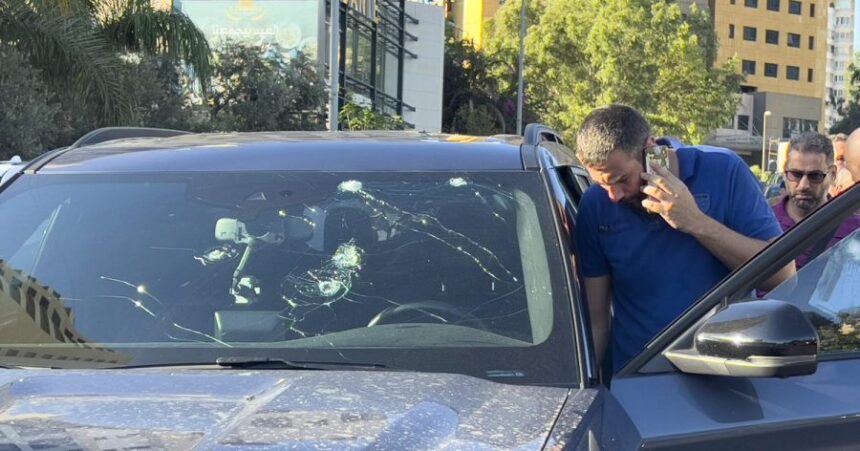BEIRUT (AP) — Hundreds of pagers exploded almost simultaneously across Lebanon and parts of Syria on Tuesday, killing at least eight people, including a member of the militant group Hezbollah and a young girl, and wounding the Iranian ambassador, government and Hezbollah officials said.
The attack, which wounded more than 2,700 people amid rising tensions on the Lebanese border, was suspected to be a sophisticated remote attack that authorities blamed on Israel. The Israeli army declined to comment.

A Hezbollah official, speaking on condition of anonymity, told The Associated Press that a new type of handheld pager used by the group first heated up and then exploded, killing at least two Hezbollah members and wounding others.
Lebanon’s Health Minister Firas Abiad said at least eight people were killed and 2,750 were injured, 200 of them seriously.
Iran’s state news agency IRNA reported that the country’s ambassador, Mojtaba Amani, was slightly injured in the pager explosion and was receiving treatment in hospital.
Photos and videos circulating on social media and in local media, taken in Beirut’s southern outskirts, showed people lying on the sidewalk with wounds to their hands and near their trouser pockets.
Hezbollah leader Hassan Nasrallah had previously warned Hezbollah members not to own mobile phones, saying Israel could use them to track Hezbollah’s movements and carry out targeted attacks.
The Lebanese Ministry of Health has asked all hospitals to be on high alert to receive emergency patients and for people with pagers to leave them at home. It has also urged medical workers to avoid using wireless devices.
An Associated Press photographer at a local hospital said emergency rooms were overflowing with patients, many with injured limbs, some in serious condition.
Hospitals in areas where Hezbollah has a strong presence, including in southern Lebanon, the eastern Bekaa Valley and Beirut’s southern suburbs, are calling on people to donate blood of all types, the state-run National News Agency reported.
The news agency reported that “dozens of injuries were reported after a sophisticated mobile pager system exploded” in Beirut’s southern suburbs and other areas.
A Hezbollah official, who spoke on condition of anonymity because he was not authorized to speak to the media, said the blast was the result of a “security operation targeting explosive devices.”
“The enemy (Israel) is behind this security incident,” the official said, without elaborating, adding that the new pager belonging to the Hezbollah member contained a lithium battery that appears to have exploded.
If lithium batteries overheat, they can smoke, melt, or catch fire. Rechargeable lithium batteries are used in a wide variety of consumer products, from cell phones and laptops to electric cars. Lithium batteries can reach ignition temperatures of up to 590°C (1,100°F).
The incident comes at a time of rising tensions between Lebanon and Israel, with Lebanese militant group Hezbollah and Israeli forces having clashed almost daily for more than 11 months against the backdrop of Israel’s war in Gaza with Hezbollah’s ally Hamas.
The clashes have left hundreds of people dead in Lebanon and dozens in Israel and forced tens of thousands to flee on both sides of the border. Israel said on Tuesday that its official war objectives are now to halt Hezbollah attacks in the north and allow residents to return to their homes.
Israel has killed Hamas fighters in the past with bombs planted on mobile phones and is widely believed to have been behind the Stuxnet computer virus attack on Iran’s nuclear program in 2010.









